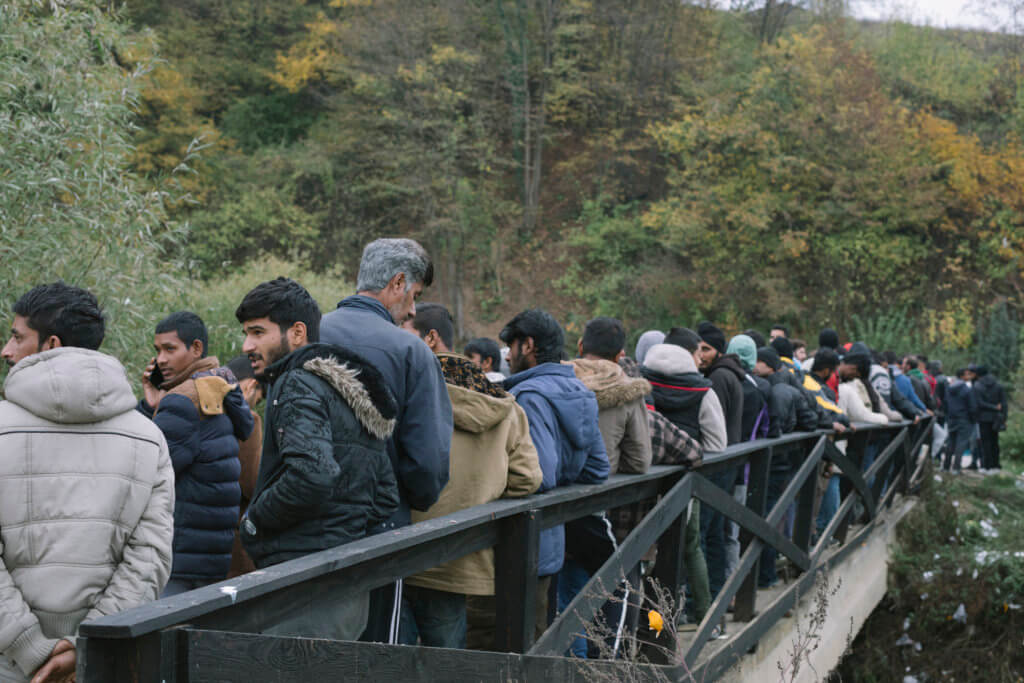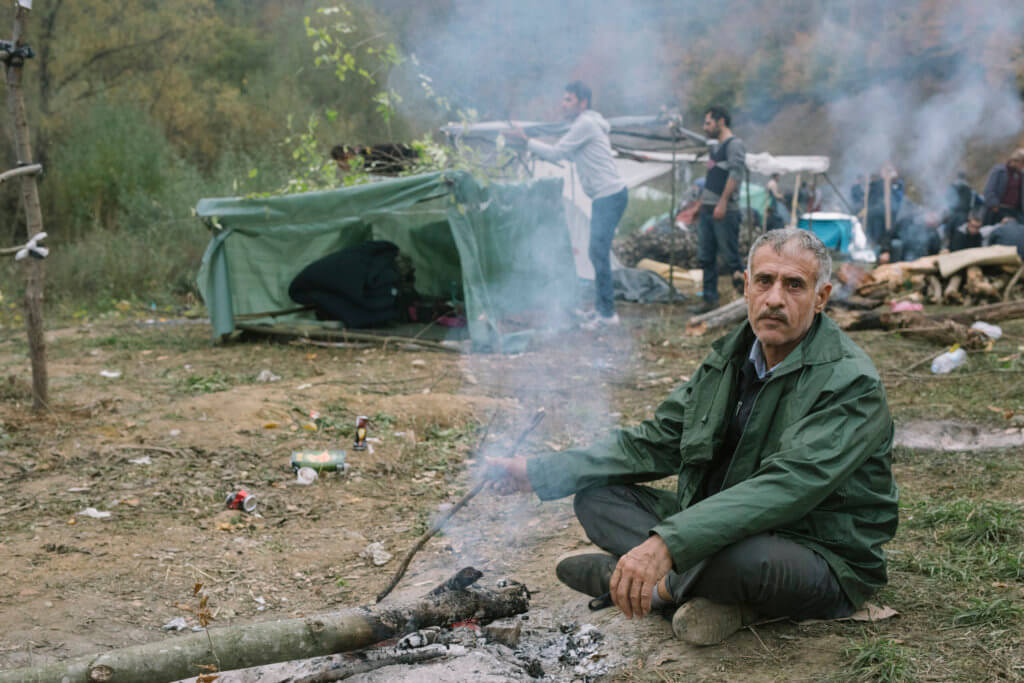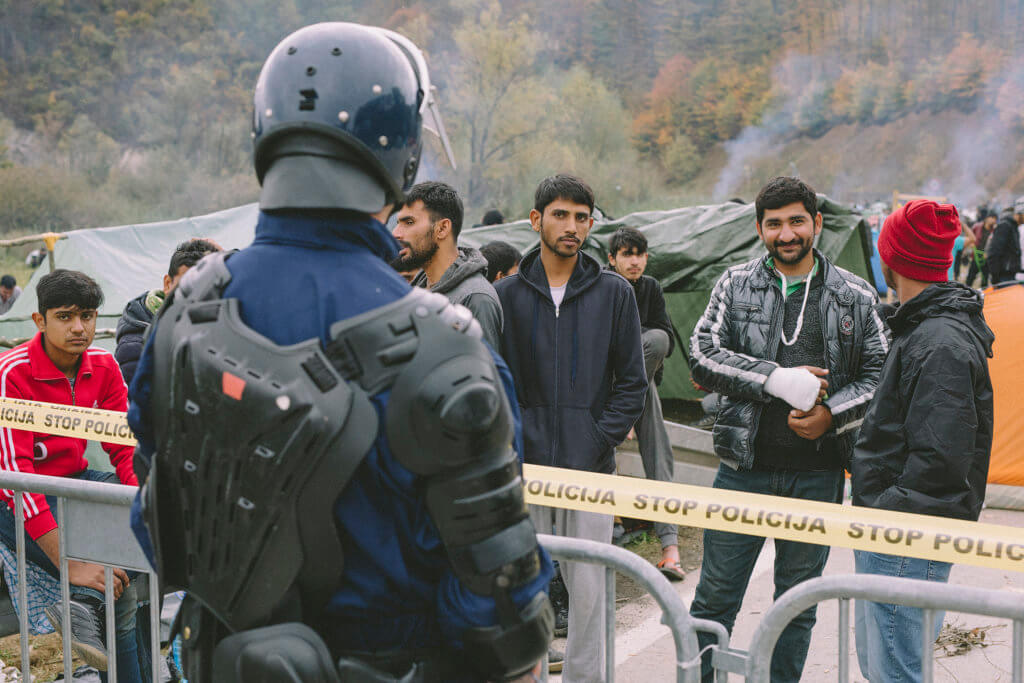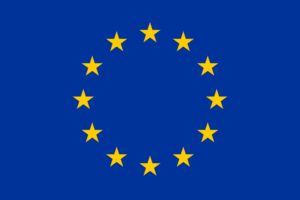[ad_1]
TTwo seventeen-year-old boys from Iran stand motionless in front of a police vehicle in an empty lot near the Croatian town of Korenica. Two police officers put on black gloves and began their search before loading the boys into a car and driving to the local police station. These are just two of thousands of migrants deported by police from Croatia to Bosnia and Herzegovina, despite criticism from Croatian and international organizations. Mass expulsions, like these, directly violate migrants’ right to seek asylum and international protections established by the 1951 United Nations Convention relating to the Status of Refugees.
Although the number of migrants has increased since 2015 due to the opening of the so-called Balkan route, most do not intend to stay in the Balkan countries but instead aim for a richer Western Europe. This is all too well known since migration is unfortunately also becoming the central issue in the rest of the European Union.
“In recent years we have seen a significant increase in xenophobia in Europe and Croatia. Refugees are its most common target, but it extends to all members of society that nationalists consider ‘other’ and different,” explains Sara Kekuš of the Center for Peace Studies, a non-governmental organization Human Rights Defense of Zagreb. “Unfortunately, victims are often those who do not enjoy full status in society, who are unprotected and are less informed about their rights. »
Due to a hostile approach towards asylum seekers and international migrants, Croatia has seen a reduction in arrivals from one million in 2015 to just 140,000 in 2018. For those concerned about the migration, Croatia’s current situation represents a success. — but this would not be possible without the support of Brussels or the closure of European borders.

However, critics of European immigration policies and the Croatian government’s current migration strategies believe that such segregationist immigration policies – based on separation, exclusion, criminalization and even dehumanization of entire populations – actually undermine democratic norms.
“In addition to systemic police violence against refugees, we also see how easily violence can escalate in all spheres of society when there are no appropriate mechanisms to monitor and penalize the offender,” explains Kekuš. “If state institutions do not take responsibility for their own violence and violations of the law or are not punished, we cannot expect society to be any different.”
Critics point to the EU’s lack of systemic solutions and its over-reliance on cosmetic humanitarian measures. Instead of long-term policies such as allowing temporary protection for more people, introducing humanitarian visas and providing other forms of protection or more permanent residences for migrants, the EU simply tried to stop people from reaching Western Europe. , explains Drago Zuparić Iljić, migration expert and assistant professor at the Department of Sociology at the Faculty of Humanities and Social Sciences in Zagreb.
“This is the result of closing borders, derogating refugees’ right to protection, even reaching EU borders, as well as paying Turkey to detain people inside of its borders,” he explains.

As an EU border state, Croatia plays a central “gatekeeper” role in implementing EU immigration policy. However, for Marijana Hameršak, a scientist at the Institute of Ethnology and Folklore Research in Zagreb, the geographical location of the Balkan countries cannot be used as an excuse to systematically exonerate countries, political bodies and individuals from responsibility. in the violation of human rights. migrants, or cause a general relativization of guilt.
“Reality… should not be attributed, through an autocolonial gesture, to local barbarity, in this case Croatian, and interpreted as deviant behavior in relation to an external and civilized Other,” she says. “(While) expulsions, violence and lawlessness at EU borders are somehow (created), in no uncertain terms, by the border security role of countries at the Union’s borders… I do not do not think that we are talking about an irreproachable, absolute given, to which the only response from the government can be a servile attitude – a pseudo-sovereign argument of border protection (by) violence and its normalization, denial, silence, accusations and scaremongering – all of which unfortunately have had an influence on Croatian governments in their various forms.
The former Yugoslavia is no stranger to mass immigration. According to UNHCR estimates, wars in Croatia, Bosnia and Herzegovina, Kosovo and Serbia have created 2.4 million refugees and up to 2 million internally displaced people.
The most radical changes occurred in 1991, when, counting Croatia alone, a quarter of a million people were relocated, and in 1995, when more than 200,000 Serbs left Croatia following the Oluja military operation. Additionally, throughout the duration of the war, Bosnia and Herzegovina hosted approximately 2.2 million resettlers and refugees.
In Kosovo, more than 800,000 people were relocated and the former Federal Republic of Yugoslavia, mainly Serbia, took in 700,000 Serbian refugees from Bosnia and Herzegovina, Croatia and Kosovo. According to UNHCR data, in 1992 Croatia was seventh on the list of 50 countries hosting the largest number of refugees. Many of these refugees – and later economic migrants – moved west to Western European countries.
Today, like that of the 1990s, regional migration mainly concerns the richest countries of Western Europe. Yet despite the similarities between contemporary migrants and former Yugoslav refugees, Croatian authorities continue to respond with less than empathetic policies.
For Drago Župarić, this disconnect can be explained by an underlying feeling of economic vulnerability and stagnation in Croatian society.
“If people don’t see opportunities for themselves and their loved ones, they’ll have a hard time providing opportunities for others,” he says. “Especially for those whose mere existence has been… “made illegal” in accordance with the narrative of the police and media, directing these “others” being perceived as an enemy, a danger, a threat.
For Hameršak, this This assessment does not bode well for future waves of migration.
“There will be many more cases of what is now called ‘crisis migration’, which arises and will arise from various crises, such as war, ethnic and religious conflicts, persecution, poverty, legal insecurity, climatic dangers, the collapse of the periphery within the country. global capitalist system,” she says. “Unfortunately, it seems to me that migrations and the means to manage them, in the sense of limiting, stopping, controlling and preventing them, are becoming the discourse of the center and even the left in certain countries, which means that they are present at several levels. of the ideological spectrum… it is necessary to perceive migration as part of the solution and not the problem.

The Croatian problem cannot be observed on an individual level, because migration is a global phenomenon and its causes, like the solutions, must be international. However, decades of deaths in the Mediterranean and five years of humanitarian crisis at the EU’s borders, including in the Western Balkans, prove that the EU remains incapable of providing protection to people seeking safety outside the EU system. asylum, and not even entirely. to those of this system.
“The EU has been pushing people back at its borders for years, erecting barriers and outsourcing migration to countries outside its borders. The novelty of the European Commission, i.e. the portfolio oriented towards “protecting the European way of life”, proves that the EU does not care about human rights, but rather about the lifestyle and the pleasure of “real” Europeans,” Kekuš explains. “Unfortunately, instead of uniting humanity and solidarity, we are witnessing, more and more frequently, the abolition of human rights and the endangerment of lives. Schengen allows the free movement of goods, but not people. It therefore remains to be seen whether the EU will become exclusively an economic union rather than an economic and political union.”
Immigration has become one of the most relevant issues in the Balkans. However, while Brussels turns a blind eye, the situation in Croatia is not very promising with the number of migrants increasing this fall. Additionally, migration within the region remains limited following ethnic conflicts in the 1990s.
Even two decades into the new millennium, the region remains caught between European and Schengen aspirations, human rights violations and poor bilateral relations.
**

The Transeuropa Caravans project was funded by the European Union’s Rights, Equality and Citizenship program (2014-2020). The content of this article represents solely the views of the author and is his sole responsibility. The European Commission declines all responsibility for the use which may be made of the information it contains. Learn more about https://transeuropacaravans.eu.

[ad_2]
Source link

